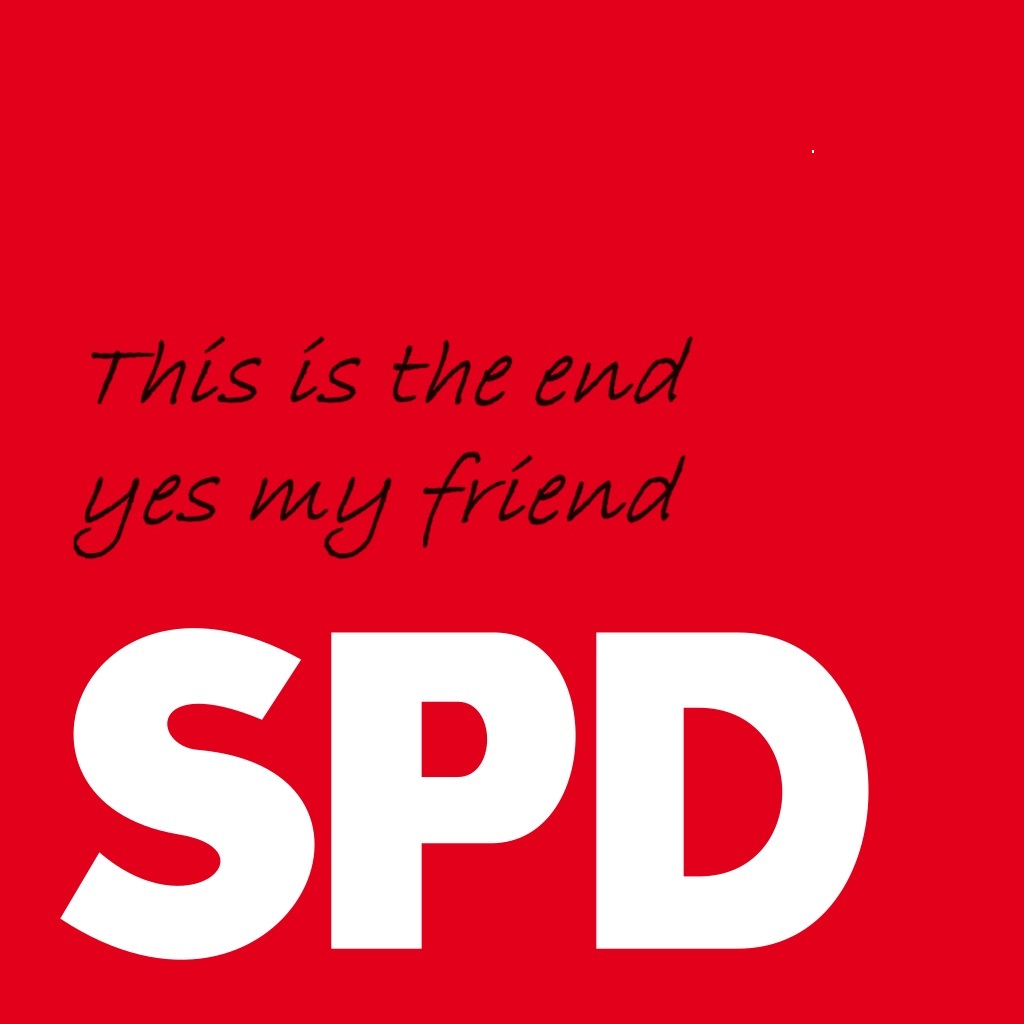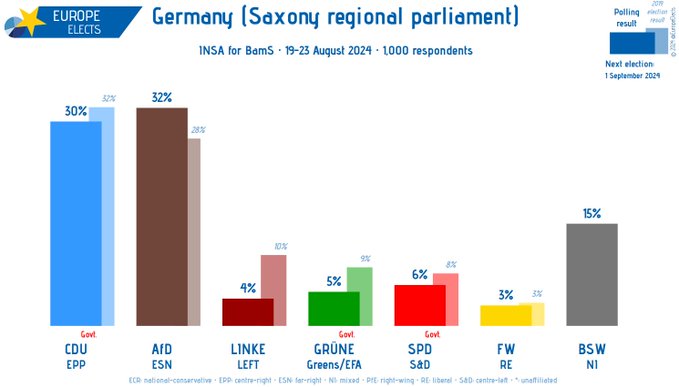International
Today we could see the beginning of the end of German social democracy. And it would be good news

German state (land) elections can bring a real revolution. East Germany’s vote could overturn the party structure. Both the left and the SPD are affected and risk not entering parliament. The former popular and state parties are now facing parliamentary collapse.
“Exiting the regional parliament would have a huge signaling effect both for the left as a traditional East German regional party and for the chancellor party, the SPD, ” says Thomas Poguntke, director of the Institute for Party Research at Heinrich Heine University in Düsseldorf . Recent polls see the Left in Saxony and Brandenburg on the verge of being ousted; the SPD must be trembling in Thuringia and Saxony.
If the polls are positive, another populist party will be created in the elections in Thuringia, Saxony and then Brandenburg, alongside the right-wing populist AfD and the Sahra Wagenknecht Alliance (BSW) around the former left-wing politician. Poguntke believes that Wagenknecht poses an existential threat to her former party. “Party leaders at the federal level have already announced their resignations, and things can hardly get worse.”

In Saxony SPD is near the 5% threshold
Threat to SPD
To understand what threat this election poses to Left Party and SPD structures, it is worth taking a closer look. If you ask party researchers, they see—in addition to symbolism and the loss of legislative power—a whole range of possible consequential damage.
“Leaving the regional parliament weakens a party politically and also significantly organizationally, since many resources are in the factions of the regional parliament,” Poguntke says. Although basic party funding is independent of whether the 5 percent threshold is exceeded, the importance of parliamentary groups should not be underestimated.
“Many political careers began as employees of members of parliament. If a party loses its parliamentary group, there will definitely be a decline in the recruitment of young talent,” the party scholar clarifies. Young political talent then threatens to migrate to other federal states or leave politics altogether.
The scientist uses the FDP as an example, which was penalized by voters for taking part in the yellow-black coalition’s governance. “At the federal level, the FDP had to let go of a significant part of its talent after its expulsion from the Bundestag. The party has not yet fully recovered.”
The parliamentary group also opens access to the parliament’s scientific services, a valuable nonpartisan support for political work. Added to this is media visibility, which is provided by parliamentary media reports.
There is another threatening factor for the Left Party: the BSW clearly positions itself as a substitute and main direct competitor. If you want to achieve something in politics, a young party where you can emerge quickly has a certain attraction.
This could be the beginning of the end for German social democracy. So in the lander elections the SPD , and not only it, is really staking its future: if it ceases to be the party of reference for the left, it will begin a process of decline that will be very rapid and will see the emergence of new political forms.
Right now it is BSW that seems to be winning, but in the future new formations may arise that can aim to take the place of a social democracy that seems to have lost its references and its own path.
The end of German social democracy, now corrupted by “woke ideology” and big business, could be good news: from its ashes could perhaps arise a movement that truly represents the German people






